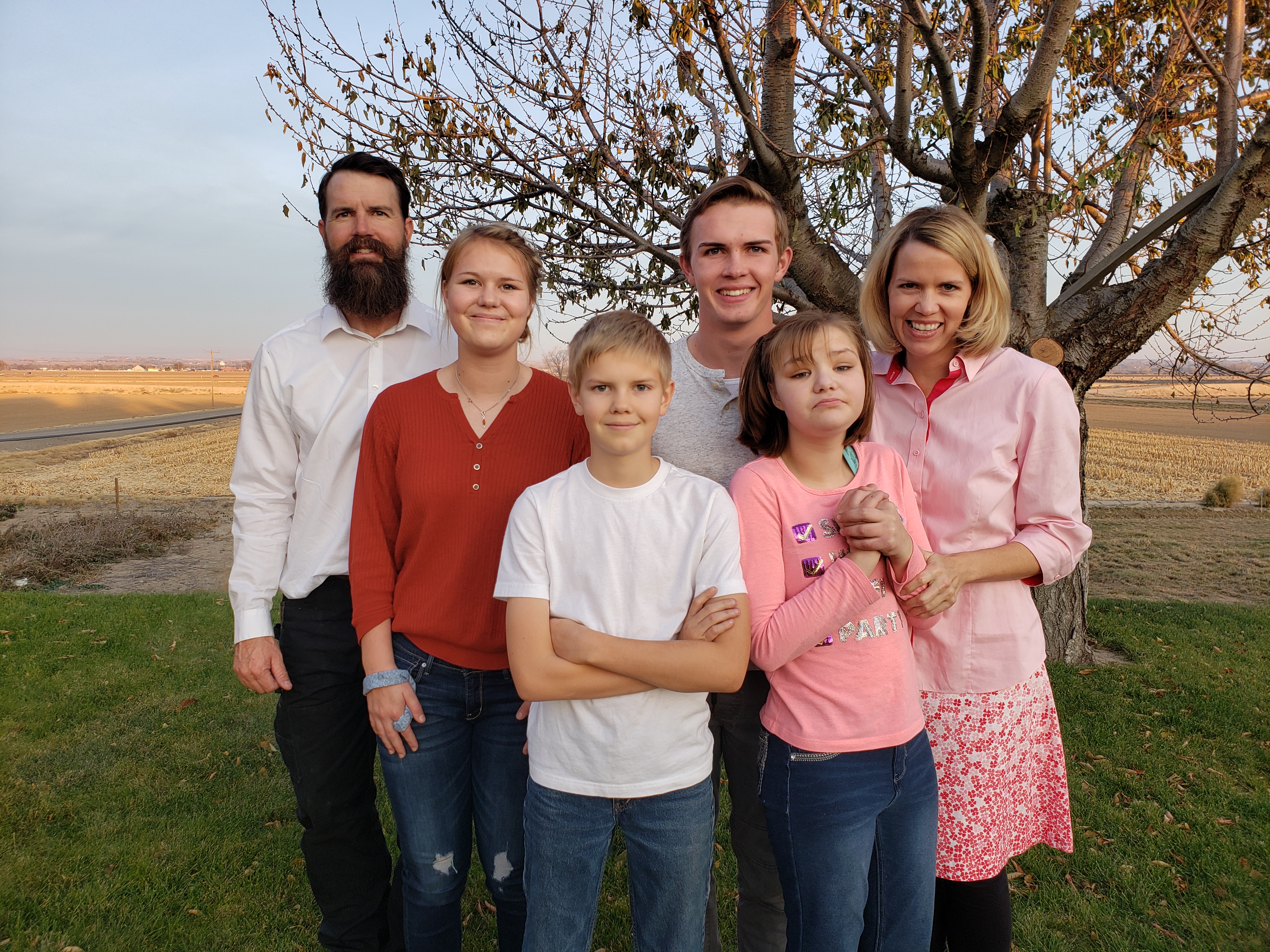‘We were just surviving, one day at a time’
Amanda Anderson - 5 November 2020

The Woodruff Family.
If you were to ask Mary Woodruff what her time at the Augmentative and Alternative Communication Camp was like, she would tell you it was ‘life changing.’
The annual Faculty of Rehabilitation Medicine event is geared toward children, youth and their families who rely on speech-generating devices to communicate. The two-day camp allows participants to engage in social activities to practice communication on their devices.
Due to the COVID-19 pandemic, this year’s camp, which took place from August 28 to 30, was moved completely online, allowing people from all over North America to participate.
Mary attended the camp with her daughter Meg, 15, who was diagnosed with Pierpont Syndrome, a tissue disorder, as a young child. As a result, Meg is non-verbal and requires an augmentative and alternative communication (AAC) device — a tool that comes equipped with pictures, words and/or the ability to type so the user can output a message without actually having to speak.
“We tried two devices when Meg was young, but I didn’t feel as though they were doing any good,” explained Mary, who lives in Nyssa, Oregon with her husband and their four children. “My kids were all at home at the time, and their ages ranged from four to 15 years old. I just had so many demands.
“Meg has low muscle tone, so sign language — after spending hours learning it myself — wasn't effective, and I didn't understand how to use the AAC device.”
Mary and her husband felt lost when it came to helping their daughter find her voice. It wasn’t until years later that they decided intervention was necessary and to give the device one last try.
Finding support at AAC Camp
“I continued to persist with communicating with my daughter on the device and I was starting to see a little bit of interest from Meg. But as my days got busier, my efforts began to decline — especially when COVID-19 hit,” said Mary, who works as an elementary school teacher.
This is when she found the University of Alberta, Department of Communication Sciences and Disorders’ AAC Camp.
“When I logged into the camp’s parent forum and it came to my turn to introduce myself and talk about my daughter, I had no success story to share. I couldn't keep my composure. I felt so ashamed. My voice started trembling and the tears surfaced. I did my best just to at least share what I could.
“The responses I got from the camp directors were so understanding and full of love that I couldn't help but cry even more from the kindness and acceptance they were showing me.”
The support she received from staff and fellow campers was all Mary needed to persevere.
“The next day, I was on fire and ready to work with Meg during the camp.
“I greatly appreciated the help I got from the camp staff with navigating Meg’s AAC device. They showed me how to easily look up a word instead of searching and then giving up because you can't find it. They were just so super kind to me.”
A bright and communicative future
Now that Mary feels more equipped to assist her daughter on her AAC device, she’s starting to look at things long-term, figuring out what she can do to ensure Meg’s success.
“I was especially grateful that the camp introduced me to the idea that my husband and I need to be thinking ahead about our daughter and her needs. What do we want for her in the future? How can we prepare for that? These are things we hadn't even considered. We were just surviving, one day at a time.”
Mary and Meg’s time at the camp allowed them to make connections with others, learn more about AAC devices and find similar opportunities for practicing communication in their own hometown.
“I was surprised to find out that there are other AAC camps that happen in Boise, only an hour from my house! I was given information about it and can't wait to attend in person next summer.”
While the camp was full of new and exciting opportunities, Mary said her most memorable experience was the bonding she was able to do with her daughter.
“The best part, overall, was how much I connected with Meg during that time. We were so much happier and my love for her increased. And I think Meg’s favourite part was the fact that her mom's attention was completely on her — she felt special.”
And how does Mary feel about her family’s journey since attending the camp?
“I have a success story now. It’s that Meg is actually starting to use her AAC device to tell me something on her own initiative. And It's beautiful every time she does.”